Best Usenet Providers 2022

If you're currently looking for the best Usenet provider to serve as your gateway into the world of newsgroups and binary downloads, look no further than Newshosting. With more than 12 years of retention, over 99.99% completion rate, 256-Bit SSL Encryption, and a free VPN and Newsreader, you won't find a more reliable option.
Yet some Usenet providers beat Newshosting in specific categories like cost, download speeds, and privacy, making your choice a little more difficult than you might have originally thought. We've broken down the best choice for each provider category; plus, for readers who aren't exactly sure what Usenet is, we've compiled everything you need to know below to get started with Usenet.
Best Usenet providers in 2021, at a glance
Why you can trust Android Central
- Newshosting — Best Overall: Everything you need in one convenient package.
- Giganews — Best Premium: Justifies its cost with an excellent VPN and data speeds.
- Easynews — Best Browser-Based Usenet for Easy Searches: Simply search for what you want in any web browser.
- Eweka — Best for Fast Downloads and Retention: This provider reaches U.S. buyers using fiber connections.
- TweakNews — Best for High Completion Rates: An excellent 99.5% completion rate and free VPN and newsreader.
- UsenetServer — Best Search Engine for NZBs: Its Global Search 2.0 tool lets you build your own NZBs and plug them into its partnered newsreaders.
- Usenet.Farm — Best for Privacy: Get Usenet access without divulging any personal information.
- Pure Usenet — Best for Cheap Unlimited Downloads: A low-priced server with 11 years of retention and 110,000 newsgroups.
What are the best Usenet providers?
When picking out a Usenet provider, the first thing to consider is that most Usenet regulars employ more than one provider at once. These companies regularly offer discounts as a way to get you hooked on their servers, and different Usenet providers offer thousands of different newsgroups that the others may not have. So when looking through our list, don't stop once you've found the first provider you like. There may be room for more than one in your life.
Still, you'll want a primary account for accessing the newsgroups, and Newshosting should be the first option you investigate because it comes equipped with the newsreader and VPN you need to dive right into Usenet. From that point, you can look for another server on a different backbone, and either subscribe to a second account or buy a block of data for a flat fee that'll serve as your backup in case you run out of data with your first account.
Do you care about old archived conversations from years past, or are you mainly looking for a torrent alternative for recent content? Are you a Usenet rookie that wants an all-in-one package, or do you just want a solitary Usenet provider so you can choose a VPN or newsreader for yourself? This guide should help answer those questions.

1. Newshosting: Best Overall Usenet Provider
Bottom line: For years, Newshosting has remained the most respected name in the Usenet provider field, thanks to one of the best retention streaks you can find for binary files, a free newsreader with file searching and previews included, and a VPN unlocked at the highest tier.
Plan pricing: Exclusive Deal: $5.99 per month - Includes 3 FREE Months | Retention time: 4416 days (~12 years), binary and text | Server farms: US, EU | Data limits per month: Unlimited | Number of connections: 30–60 | Completion percentage: 99%+ | Complementary Newsreader: ✔️, Newshosting Newsreader app | Complementary VPN: ✔️ , PrivadoVPN | Encryption: 256-Bit SSL Encryption | Newsgroups: 110,000+ | Payment options: Card, Paypal | Backbone: Highwinds | Free trial: 14 days, 30GB
Pros:
- 12-year retention
- Up to 60 connections
- Unlimited downloads and download speed
- Free Newshosting Newsreader app
- Free VPN with top plan
Cons:
- No cryptocurrency payment option
- Resellers can offer better deals
| Version | Price |
|---|---|
| Exclusive Deal: 12+3 FREE Months | $5.99/month |
| 1 Month | $9.99/month |
Every year, new Usenet providers pop up promising a decade of archived content, but it's not clear if they can live up to their promises, or if they're just referring to text retention and not binary retention. What you should look out for is a company that has actually been running its Usenet business for over a decade. Whatever you upload to Newshosting, you can rest assured it'll stay there for a long time.
Newshosting gives Usenet rookies all the tools they need to get started, but Usenet veterans will also get all of the specs they'll want for more advanced tricks like scheduled or automatic downloads at max bandwidth.
Even with its cheapest plan, Newshosting gives you what every self-respecting Usenet service should provide: a 14-day free trial, 256-bit encryption, over 100,000 uncensored newsgroups, and "Unlimited" speeds, which means it will push your downloads as fast as your router will allow. You also receive a free version of the Newshosting Newsreader (available for Mac, PC, and Linux), a tool that helps you find NZBs to download and previews photos and videos in the app so you don't get tricked into downloading something bad.
Finally, with the top plan, you get free access to the PrivadoVPN, which will help preserve your privacy. This plan will admittedly set you back a fair amount per month, and if you already have one of our recommended VPNs you may want to stick with that instead. Thankfully, you can get an exclusive 70% discount with 3 FREE Months of unlimited Usenet access through Android Central. This deal includes unlimited downloads, unlimited speeds, a free newsreader with search, and a free Zero-Log VPN.

Tough to beat
Newshosting is an old pro at UseNet and will give you the tools you need to fully explore and take advantage of Usenet. Exclusive Offer: Get 3 FREE Months of unlimited Usenet access with a free newsreader (search included) and a free Zero-Log VPN
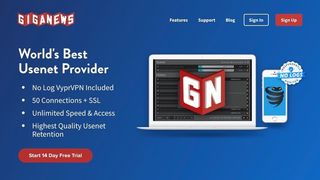
2. Giganews: Best Premium Usenet Provider
Bottom line: In business since 1994, Giganews is a reputable provider with good security, an excellent partnered VPN, and a free browser-based newsreader and search engine. Unfortunately, it's a bit too expensive to upgrade to strong data and connection performance, and its retention is disappointing.
Plan pricing: $5–$22 per month | Retention time: 3+ years (binary), 17+ years (text), with multiple copies | Server farms: NA, EU | Data limits per month: 5GB, 10GB, 50GB or unlimited | Number of connections: 20–50 | Completion percentage: 99%+ | Complementary Newsreader: ✔️, Mimo Usenet Browser + Search | Complementary VPN: ✔️, VyprVPN | Encryption: 256-bit SSL encryption | Newsgroups: 110,000+ | Payment options: Card, Paypal | Backbone: Giganews | Free trial: 14 days, 10GB
Pros:
- VyprVPN Premium
- Most varied plan options
- Header download compression
- Mimo Usenet browser and search engine
Cons:
- Expensive fee for unlimited plans
- Only 3+ years retention
- Only 20 connections except for top plan
| Version | Price |
|---|---|
| Giganews Bronze | $9.99/month |
| Giganews Platinum | $19.99/month |
| Giganews Diamond | $21.99/month |
Giganews has 17 years of text pages saved, more than any other option on our list, so it's a good choice if you want full access to every discussion board made over that stretch of time. However, it only has 3+ years of binary retention — less than any other plan on this list. This means that Giganews prioritizes new files and actively swaps out old ones, which may not matter if you only want access to the latest content.
With the more affordable plans, you only get somewhere between 5GB and 50GB of storage per month. If you run out of data, you can choose to have your next billing month start early to get more bandwidth, rather than be stuck with an unusable account until the month ends.
With the Diamond plan, you get access to the VyprVPN Premium, which comes with five simultaneous connections, Point-to-Point Tunneling Protocol (PPTP), Layer Two Tunneling Protocol (L2TP), IPsec, OpenVPN, a NAT firewall to protect your network, and the Chameleon protocol for subverting VPN blocks. Unfortunately, that plan will cost you a good chunk of money per month.
Mimo, Usenet's Java-based browser for Mac or PC, is a free accessory for all accounts. With it, you can search Giganews' servers or Usenet in general for newsgroups, headers, or posts, which can help you know if the service is missing something you want. Then, you can download binary files. The browser has PAR2 verification and recovery to make sure anything you download isn't corrupted, along with automatic RAR expansion.
In the end, what makes Giganews stand out is that it has multiple servers in the U.S. and EU for low latency in most areas, and full-speed access for its limited selection of binary files instead of slower speeds for the older content, which some providers do automatically. It also claims to connect with multiple backbones besides the one it owns, which helps to expand its newsgroup coverage beyond the average.

Lowest latency
With Giganews, you'll push your download speeds to the limit and get one of 200,000 IPs from over 50 countries through your VPN.
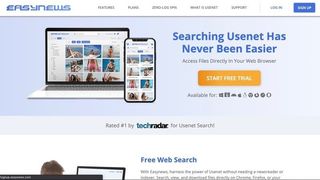
3. EasyNews: Best Browser-Based Usenet for Easy Searches
Bottom line: Instead of making you download its own special browser and newsreader, Easynews works as an encrypted, browser-based Usenet program, giving you quick access on your phone as well as your computer. Retention time, number of connections, and download speeds are excellent, but you won't find an unlimited data plan.
Plan pricing: $7.50/month | Retention time: 4480 (~12 years) | Data limits per month: Unlimited | Number of connections: 60 | Completion percentage: 99%+ | Complementary Newsreader: ✔️ | Complementary VPN: ZeroLog VPN | Encryption: 256-bit SSL encryption | Newsgroups: 110,000+ | Payment options: Card, Paypal | Backbone: Highwinds | Free trial: 14 days
Pros:
- Built-in newsreader in any browser
- Long retention time
- Total HTTPS encryption
- 60 connections with basic plan
Cons:
- Can be expensive for larger data plan
- No unlimited data plan
- No cryptocurrency payment option
| Version | Price |
|---|---|
| Exclusive Deal (Unlimited GB/mo) | $7.50/month |
| Easynews Classic (20GB/month) | $10/month |
| Easynews Plus (40GB/month) | $15/month |
| Easynews Big Gig (150GB/month) | $30/month |
Easynews isn't a misnomer: it might be the simplest service for Usenet newbies to use because it doesn't require a separate browser or newsreader. Instead, Easynews' search engine can be pulled up on any web browser, including on your phone or tablet. It's a bit like going to Google to search for content, except you'll get a completely different set of search results from over 12 years of Usenet newsgroup data. It's the only provider that essentially has its own NZB indexer built in.
While users prefer it for its simplicity, that doesn't mean the service itself is bare-bones. It comes with an optional VPN that's included at the highest tier. You can connect advanced downloading tools like SABnbzd, NZBGet, GrabIt, and Newsleecher. It offers 24/7 customer service. All downloads or other actions performed on the site are encrypted by default. And thanks to its default 60 connections, download speeds will only be limited by your internet provider, meaning they'll be super fast for most.
It has the same Highwinds backbone as Newshosting (our top pick) and UsenetServer (another pick below), so you'll want to pick one of the three. Both Easynews and Newshosting have comparable retention and newsgroup numbers, an NZB-import option, and very fast download speeds. What makes Newshosting better simply comes down to its option for unlimited downloads at its lowest tier plan, yet Easynews has double the connections on its lower-price plans.
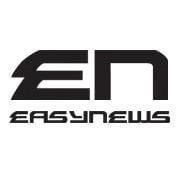
Usenet 101 for beginners
Easynews makes Usenet more accessible to beginners used to browser-based searches, and has 12 years' worth of content to explore.
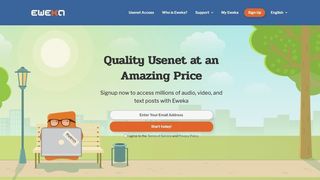
4. Eweka: Best Usenet Provider for Fast Downloads and Retention
Bottom line: Eweka is a Tier 1 provider with all-around superb retention, completion, and newsgroup quantity based in the EU. You get unlimited download speeds with unlimited access and a free newsreader, but you'll need to invest in your own VPN.
Plan pricing: € 7.00–9.60 | Retention time: 4,413 days (~12 years) | Server farms: EU | Data limits per month: Unlimited | Number of connections: 50 | Completion percentage: 99%+ | Complementary Newsreader: ✔️, Newslazer | Complementary VPN: 🚫 | Encryption: 256-bit SSL encryption | Newsgroups: 125,000+ | Payment options: Card, Paypal | Backbone: Eweka | Free trial: ✔️, 7 days with unlimited downloads
Pros:
- 12-year retention and climbing
- 125,000+ Newsgroups for good breadth
- Newsreader included
- Self-managed EU network and US fiber connections
Cons:
- No VPN included
- Only a seven-day trial
| Version | Price |
|---|---|
| High-Speed Subscription | €7/month |
Eweka is unapologetically catered to EU buyers, hence the price in Euros and the multiple server locations in Amsterdam, London, Frankfurt, and more. However, North American buyers get access to fiber connections through its trans-Atlantic backbone, so your download speeds should still be fast.
Like Newshosting, Eweka has a full 12-year-and-climbing retention of most Usenet newsgroups and claims to have at least a 15,000 newsgroup advantage on them. Both providers are owned by the same parent company but run off different backbones, so many users subscribe to both to get a wider range of coverage.
With any Eweka subscription, you get a free copy of Newslazer, a third-party newsreader for PC, Mac, and Linux. With it, you can search for files or newsgroups, bookmark your faves, adjust your connections and max download speeds (either to maximize speeds or to avoid throttling your other web searches), turn on automatic previews or safe search, and more.
The reason we like Eweka is that it offers up to 50 simultaneous connections and unlimited download speeds, something we don't see from every usenet provider. And while you don't get a built-in VPN with your Eweka plan, the reasonable price lets you save some money for one of our top VPN picks if you need one.
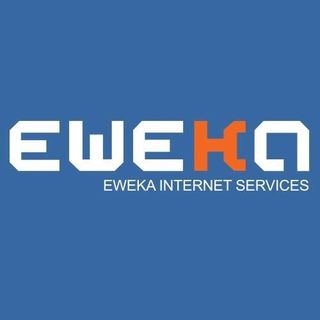
Eureka! We've found a good provider
Eweka offers excellent speed and other specs that compete with some of the best providers on the market, but for a cheaper price.
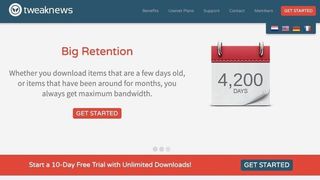
5. TweakNews: Best Usenet Provider for High Completion Rates
Bottom line: After recently upgrading its retention from 2,500 to 4,200 in about a year, TweakNews sealed up its major weakness and solidified its status as one of the best providers available. Whatever files you find with the complimentary newsreader should be able to download it thanks to its 99.9% completion rating.
Plan pricing: €7.50/month for unlimited | Retention time: 4,200 days (~11.5 years) | Server farms: US and EU | Data limits per month: Unlimited | Number of connections: 30–60 | Completion percentage: 99.9%+ | Complementary Newsreader: ✔️, UsenetWire | Complementary VPN: ✔️ | Encryption: 256-bit SSL encryption | Newsgroups: 110,000 | Payment options: Card, Paypal | Backbone: Base IP | Free trial: ✔️, 10-day trial with unlimited downloads
Pros:
- Varied subscription and block pricing
- Unlimited downloads during trial
- 99.9% completion rate
- Newsreader and VPN included
Cons:
- Block plans are a bit pricey
- Download speeds capped at lower tiers
| Version | Price |
|---|---|
| Block package | €45 |
| Ultimate plan + VPN | € 9.07/month |
While other companies restrict unlimited data downloads to their premier plans, TweakNews allows unlimited at its cheapest price point but does restrict your download speeds and connections. The first plan offers 50Mbit, 30 connections, and no VPN, while the top plan comes with the VPN, 60 connections, and goes as fast as your internet plan can handle.
Lower download speeds may not be a problem with the free UsenetWire app, which lets you schedule and automate downloads. You can also search Usenet by rating, file type, and binary only; browse for and bookmark newsgroups; adjust your number of connections and download speed limit; turn on safe search; and so on. If this list is giving you déjà vu, UsenetWire appears to be the same as Eweka's Newslazer, rebranded but with the same language and list of features on their respective websites. Unsurprising, given both providers have the same parent company, Omicron.
TweakNews also offers pre-paid Block plans to download between 10GB and 500GB, making it a solid backup option if you want access to the Base IP backbone but already have another primary account in mind. You could also start your Usenet experience with a hard number of GB and see how quickly you burn through them. It's possible that you won't use it enough to justify a monthly cost, and may just want data that will last you as long as you need.
TweakNews provides access to 110,000+ binary and text newsgroups, and has complete retention on all articles in all newsgroups.

Tweaking its retention rates
TweakNews offers versatile and affordable pricing for excellent specs, making it a respectable option as a main or backup provider.

6. UsenetServer: Best Search Engine for NZBs
Bottom line: This Highwinds Usenet provider offers unlimited downloads for a cheap monthly rate, and its complementary VPN gives you private browsing along with priority network routing, geo simulation, and zero logging. Speeds are good and completion is reliable, though with 20 max connections it won't be the fastest available. What makes UsenetServer stand out is its Global Search 2.0 tool, which makes creating NZBs simple.
Plan pricing: $8–$15 per month | Retention time: 4480 days binary (~12 years) | Server farms: US & EU | Data limits per month: Unlimited | Number of connections: 20 | Completion percentage: 99%+ | Complementary Newsreader: 🚫 | Complementary VPN: ✔️, PrivadoVPN | Encryption: 256-bit SSL encryption | Newsgroups: 110,000 | Payment options: Card, Paypal | Backbone: Highwinds | Free trial: 30 days to cancel for full refund
Pros:
- Affordable price for unlimited downloads
- PrivadoVPN included
- Over 12 years of binary retention
- Global Search 2.0
Cons:
- Only 20 max connections
- No cryptocurrency payment option
| Version | Price |
|---|---|
| Month-to-month | $10/month |
| Annual | $7.95/month |
UsenetServer offers most of the same features as the other top picks on our list, but that doesn't mean you should take them for granted. Twelve years of binary retention is about as good as it gets, and the company guarantees a high completion percentage of downloads. It also offers the same reliable VPN used by Newshosting, which is complementary with the annual plan, and it hits other solid benchmarks like 110,000 newsgroups and server farms in both North America and Europe.
One area where UsenetServer stands out is its affordable pricing. $7.95/month for unlimited downloads is among the lowest we've seen. Some of this discount is undoubtedly due to UsenetServer only reserving 20 connections for users even at the highest tier, but download speeds should still be high enough for most users.
The other intriguing aspect of UsenetServer is its proprietary Global Search 2.0 tool, which lets you search Usenet for content and generate an NZB file that you can then place into your newsreader of choice, where it will be automatically downloaded with no errors. Outside of Easynews reader, most Usenet providers don't provide this kind of search and indexing tool.
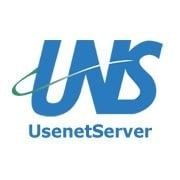
Great retention and unlimited data
UsenetServer is a popular Highwinds server that gives you access to over a decade of content for a cheap monthly price.

7. Usenet.Farm: Best Usenet Provider for Privacy
Bottom line: Farm doesn't have the best retention or free perks compared to other picks — you'll have to pay for your own newsreader and VPN — but it stands out by giving you the option to pay for it anonymously if privacy is an important concern to you. It also lets you try out its service without giving them your payment information.
Plan pricing: €4.95–€7.95 per month; or, 500GB for €15 | Retention time: 3000 days (~8 years) | Server farms: NA, EU | Data limits per month: 4TB–6TB Fair Use policy | Number of connections: 40–50 | Completion percentage: 99%+ | Complementary Newsreader: 🚫 | Complementary VPN: 🚫 | Encryption: 256-bit SSL encryption | Newsgroups: Unknown | Payment options: Card, Paypal, Bitcoin | Backbone: Its Hosted | Free trial: 10GB free trial with no payment info
Pros:
- Affordable monthly prices for plans
- Good price on 500GB block
- 10GB free trial with just an email address
- Account sharing allowed
Cons:
- Technically no "unlimited" data plans
- No free newsreader or VPN
- Average retention
| Version | Price |
|---|---|
| "To the Max" plan | €7.95/month |
| Prepaid 500GB block | €15 |
Usenet providers can be hacked just like any other company, and even if they promise to protect your data, you're never fully certain what information they're keeping about you. With Farm, the company promises to only save your name and country; and, if you use Bitcoin to pay, it won't even have that information. It does track your overall activity, but not what you read or post.
To start, you provide an email (one that keeps you anonymous, if that matters to you) and you immediately get access to 10GB of data for free, with no payment information. Once you've burned through that, Farm offers two monthly plans: one with throttled data speeds and a 4TB soft cap that, when surpassed, slows your downloads to a crawl, and a still affordable plan with unlimited speeds and a 6TB soft cap. With the second option, you also have the option to share your account with one other user.
With its tracked performance information, Farm creates a dashboard that keeps you apprised of your number of articles downloaded, articles not found, articles posted, bytes downloaded, bytes uploaded, and data space remaining for the month. With this data, you'll be able to see if you're getting your money's worth or if you fail to find one too many articles. Any data it saves about you is made anonymous after three months, or after one month if you cancel (though, technically, you only need to stop payment, as there are no automatic payment options).
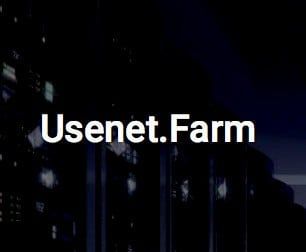
Cheap monthly or upfront costs
Farm makes it easy to browse Usenet without worrying about personal info but requires you to pick a VPN and newsreader yourself.
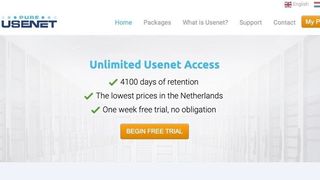
8. Pure Usenet: Best for Cheap Unlimited Downloads
Bottom line: If price and unlimited data are your most important criteria for a good usenet provider, then look no further than Pure Usenet. It doesn't have the fastest downloads or bundle in a newsreader or VPN, but if you'd prefer using your own, then this option cuts out the built-in costs for such services and just gives you total Usenet access.
Plan pricing: €3–€6 per month | Retention time: 4100 days (~11 years) | Server farms: EU | Data limits per month: Unlimited downloads | Number of connections: 8–20 | Complementary Newsreader: 🚫 | Complementary VPN: 🚫 | Encryption: 256-bit SSL encryption | Newsgroups: 110,000+ | Payment options: Card, Paypal | Backbone: Base IP | Free trial: Unlimited downloads for one week
Pros:
- Affordably priced for all three unlimited plans
- One-week free trial offers unlimited downloads
- Over a decade of retention
Cons:
- No VPN or newsreader
- Limited connections and Mbps at lower tiers
- Meager support online
- No U.S. servers
| Version | Price |
|---|---|
| Pure M plan | €3.09/month |
| Pure XL plan | €4.53/month |
| Pure XXL plan | €5.97/month |
Pure Usenet radically upgraded its retention rates recently, rising from about 5.5 years to over 11 years from 2019 to now. It also used to have a 12-connection maximum but now offers 20 with its top plan. These upgrades make it easier to recommend Pure Usenet, which is a fairly barebones, bargain-priced Usenet provider.
It doesn't have a partnered VPN or newsreader, its meager support page only seems to have eight pages in total, and it only has servers in Europe. Yet for Usenet superusers that know exactly what they're doing, it gives you access to unlimited downloads off of the Base IP backbone for an excellent monthly price.
You can choose between the Pure M plan with a 20Mbps and eight connections for the cheapest monthly cost (check your internet download rates to see if this would throttle you compared to your maximum potential), the Pure XL for 40Mbps and 12 connections, or the XXL plan for unlimited data speeds.

Great for EU Usenet users
Looking for Usenet access for a low price without bundles software you don't need? Try out Pure Usenet.
What is Usenet and why do I need it?
In an alternate reality, the world wide web could have spawned from Usenet, rather than the Arpanet network that became the Internet. In 1979, Duke University grad students Jim Ellis and Tom Truscott formulated their plans for a network comprised of newsgroups hosted on servers. Usenet participants could post or respond to articles in a variety of categories like "alt." and "talk." Responses were threaded so topics could branch out indefinitely into varying discussions and subtopics.
The closest modern-day equivalent would be Reddit, if its subreddit threads could spawn new sub-subreddits and it lacked a voting system to organize content. Nowadays, Usenet is used less for conversation, and many of Usenet's news threads can now be found online using your web browser as a gateway. Google Groups, for example, has an archive of USENET posts that are retained indefinitely (more on retention rates later).
Newsgroups and text-based discussions are just one side of Usenet, however. Users can also save binary files to Usenet servers that can contain video, audio, or any other file type you can think of. These files are usually too large to fit inside a single Usenet article, so they are split across as many articles as it takes to host them; then, an NZB file is created that points out where all of the articles containing the binary code can be found, and how they slot together.
To find, download and convert these binary files into something your PC can use, you'll need a Usenet provider to access Usenet servers where the files are stored; a binary-enabled newsreader that can interpret NZB files; and an indexer database of NZB files that lists out all of the files on Usenet that are available to download. Armed with these tools, Usenet users can use the platform as an alternative to torrenting content (legal or otherwise).
What's the difference between Usenet and torrent websites?
Torrenting websites are full of "leechers" and "seeders". The speed of leechers' downloads depends on the number of seeders in the torrent swarm; the more people trying to download something, the faster you'll get ahold of it. Once you torrent something, though, you're complicit in disseminating that thing to other users, which could land you in trouble. Many regular torrent users invest in a VPN for this reason.
With Usenet, your download speeds are entirely dependent on your provider and your internet plan. Giganews, for example, promises "uncapped" download speeds by pairing yours with the nearest, fastest server in its network. You'll always have the same Mbps rate for each download, no matter how popular or unpopular it is. Even better, you don't need to waste any bandwidth uploading the file for the next user.
Many Usenet providers bundle in automatic VPN software — so your identity is kept from the websites you visit — as well as software for unzipping files and scanning them for viruses. Essentially, Usenet makes downloading content easier, more private, and safer.
The main positive of torrenting is, of course, that you don't need to pay for servers to access content — though you will want to pay for a VPN and antivirus software.
How is one Usenet provider different from another?
There are hundreds of thousands of newsgroups worldwide, and they can (mostly) be found on any Usenet server. However, every bit of data saved — especially GBs of binary data — is expensive to maintain. So, Usenet providers with limited server space delete older Usenet files to make room for new ones. The amount of time that newsgroup data is stored before being overwritten represents the provider's retention rate.
Some providers' retention rates continue to grow every day because they spool their files so that they remain available indefinitely on intermediate servers. Because of this, providers like Newshosting and TweakNews have high completion rates, a term referring to the percentage of total Usenet posts ever made that can be found on its platform. They spool their data first before overriding it, so almost nothing is ever lost.
Most providers will advertise newsgroup collections of 100,000 or more, but one provider's newsgroup library won't be the same as another's...unless they share the same backbone and parent company.
Companies like Giganews and Usenet.Farm are Tier 1 providers, meaning they all have their own server farms that they don't share with any other provider. However, a large majority of providers are all owned by the same company (Omicron), and many of these providers use the same servers with the same selection of newsgroups. They differ in areas like download speed and data limits, but in the end, you'll find virtually the same files with either company.
Many Usenet fans pay for more than one provider, to get better coverage so they don't miss out on anything. If you decide to go that route, you should make sure that the two companies you pick have different backbones, to make sure you're not paying double for the same content.
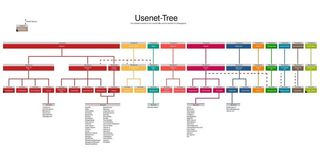
How to pick the best Usenet provider
We chose Newshosting for our best Usenet provider pick due to all-around excellence in a variety of categories. For one, it confirms on its site that it has a binary retention time of 4416 days. Many providers will boast of a 10-12-year retention rate, without specifying that this only refers to text posts that are incredibly easy to store.
For another, we like the free Newshosting Newsreader desktop app for Windows, Apple, and Linux. Usenet is only useful if you can find topics and communities that interest you, and this program makes it easy for beginners to find content like NZBs. In your search results, you get video and image previews, so you know what to expect before you download anything. You can even schedule auto searches and auto downloads based on your favorite search terms, or bookmark your favorite pages or newsgroups.
Despite being a well-rounded product, Newshosting doesn't outshine its competition in every area. Some offer faster data downloads or unlimited data at a lower price point. Others offer more detailed VPN controls or access to more Newsgroups.
If you're new to Usenet and can't decide which Usenet provider is best for you, focus on these criteria:
1. Consider Block pricing (at first)
If you're new to Usenet, it may take you some time to get a hang of the system. Most of our recommended companies offer 24/7 customer support. But mastering a platform you've never used before is no small feat.
Technically, Usenet providers offer two-week or month-long free trials precisely so you have time to get the hang of things and see if you like Usenet. However, depending on how busy you are with work or other life responsibilities, that may not be enough time. So we recommend you start with a small Block plan from a provider like TweakNews or Usenet.Farm.
Once you've burned through 50GB, 500GB, or whatever quantity you pick, you'll have a better idea of whether you need an unlimited data plan or if you're fine with a data cap in exchange for a lower monthly fee.
2. Make sure you have servers nearby
We did our best to choose providers with servers in both North America (NA) and the European Union (EU), but some solid providers consolidate their business in one region or the other. For the highest Mbps rates, you won't want to deal with distance-based latency.
You'll also want to make the best possible use of your connections to optimize your available bandwidth. Your newsreader will typically use just one connection by default, which won't generate very fast downloads, but you can increase the number of connections until your bandwidth hits the maximum that your internet can handle. Just don't try adding all of your connections: too many at once can slow down your download speeds.
3. Subscribe to two providers, or one subscription and one block
You may think 100,000+ newsgroups would be enough, but most hardcore Usenetters regularly subscribe to multiple providers at once to improve their coverage. As we mentioned previously, and as referenced in the chart above, different providers come from different backbones that in turn run off of different servers. The more backbones you subscribe to, the more Usenet coverage you'll have.
Subscribing to Nesthosting and Easynews doesn't make much sense, since both pull from the same retained newsgroups. But if you subscribed to Eweka and TweakNews, you would expand your coverage even though they're both owned by the same company.
Unless you truly plan on using dozens of gigabytes every month across multiple accounts, we recommend that you start with one subscription, and then pay for a Block membership with another provider. These give you a flat amount of gigabytes that never expire, so it can serve as a backup for months, even years, off of a single one-time payment.
What are the best Usenet providers for beginners?
Assuming this wave of information hasn't put you off from giving Usenet a try, then you, a beginner to the world of Usenet, should start with a low price month-to-month plan or small block rather than an annual, premium plan. Unlimited data and a discounted yearly price are great if you plan on using Usenet every day to watch, download or upload a ton of content. But Usenet isn't going to replace your Netflix binges, gaming marathons, or whatever else you've been doing with your time up until now, at least not immediately. See if Usenet is for you first before putting a bunch of money down.
To pick the best Usenet providers for beginners, we focused on completion rate, price, and a bundled newsreader and VPN to make things as straightforward as possible.
The top 3 Usenet providers for your first Usenet experience
- Easynews — Make Usenet feel more like traditional web browsing with Easynews. It bundles in searching, indexing, reading and downloading content into one web page that you can access from any browser. While it doesn't offer unlimited data, it does at least offer unlimited download speed, and beginners likely won't need a huge amount of data anyway.
- TweakNews — Start with its unlimited download free trial to dive into the world of Usenet; then you can choose between a cheap monthly plan or small data Block that will help you ease into things. Its high retention and completion percentage will let you explore the whole history of Usenet, and the bundled reader will introduce you to newsgroups and binary downloads.
- Eweka — This pick is predicated on the fact that you may already have a solid VPN. In that case, Eweka offers month-to-month plans with high retention and unlimited downloads at a low price. The negative will be the low number of connections and data speed cap, but you can transition to the annual plan once you've explored Usenet enough (through the free newsreader) to be sure you're ready to invest more time and money in it.
Usenet users like to quote Fight Club and say the first (and second) rule of Usenet is not to talk about it to outsiders. We've broken that rule so that you'll have the tools in hand to choose the best Usenet provider for you. Are you ready to join this niche group or Usenet experts?
Credits — The team that worked on this guide

Michael Hicks got his tech start in 2016, covering emerging tech like VR and self-driving cars before expanding to all things tech. When he's not gaming or reading SFF novels, he writes freelance for Android Central and Windows Central.
Be an expert in 5 minutes
Get the latest news from Android Central, your trusted companion in the world of Android

Michael is Android Central's resident expert on fitness tech and wearables, with an enthusiast's love of VR tech on the side. After years freelancing for Techradar, Wareable, Windows Central, Digital Trends, and other sites on a variety of tech topics, AC has given him the chance to really dive into the topics he's passionate about. He's also a semi-reformed Apple-to-Android user who loves D&D, Star Wars, and Lord of the Rings.
For wearables, Michael has tested dozens of smartwatches from Garmin, Fitbit, Samsung, Apple, COROS, Polar, Amazfit, and other brands, and will always focus on recommending the best product over the best brand. He's also completed marathons like NYC, SF, Marine Corps, Big Sur, and California International — though he's still trying to break that 4-hour barrier.
